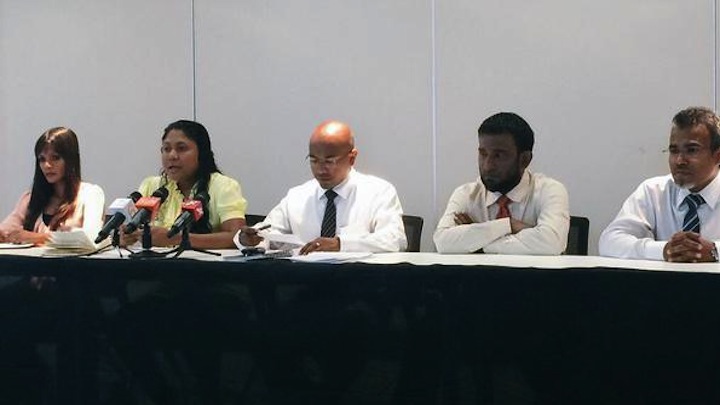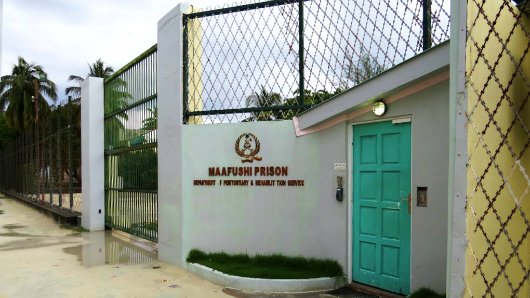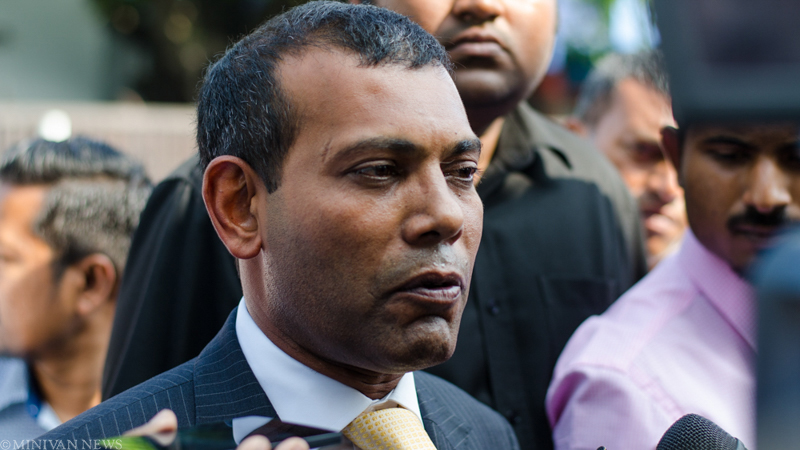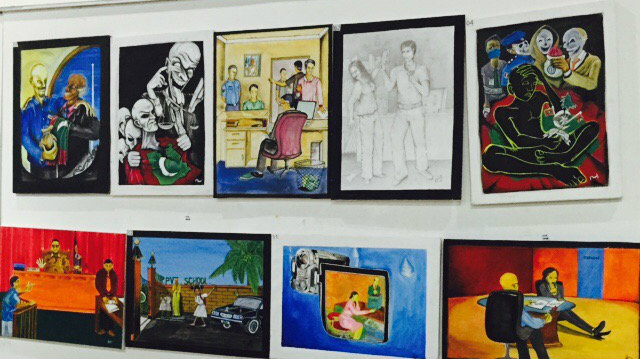The government has restricted visitation rights for imprisoned ex-President Mohamed Nasheed to his wife, children and parents, the former president’s office has revealed.
The opposition leader’s siblings and members of his extended family were previously allowed to visit him at the high-security Maafushi jail.
“Today’s arbitrary change was announced suddenly and does not seem to be a reflection of any established procedures or regulations governing the Maldives Correctional Service,” the former president’s office said in a statement.
It added that an official from the Maafushi informed the family of the restrictions in a phone call to a non-family member.
“These changes come at a time where President Nasheed’s lawyers were denied their weekly visit – without rationale – on Wednesday, and while it has been over a month since he has been denied a MRI scan recommended by doctors at Maafushi health centre and the military clinic in Malé,” the statement continued.
“The MRI can only be done in Malé and the authorities denied him the scan even though they brought him to Malé on 22 May.”
The home ministry’s media coordinator Thazmeel Abdul Samad and prisons officials were unavailable for comment.
The former president was found guilty of terrorism in March over the detention of a judge during his tenure and sentenced to 13 years in prison. The 19-day rushed trial was widely criticised over its apparent lack of due process.
The home ministry has previously said prisoners are only allowed a visit once a month.
Nasheed’s lawyer Hassan Latheef told Minivan News today that the legal team was previously allowed daily visits, but the home minister later restricted the visits to once a week.
After visiting the former president every Wednesday for three weeks, Latheef said the lawyers were informed via a phone call yesterday that the weekly visit has been cancelled.
Authorising visits from the lawyers now appears to be at the discretion of prison officials, Latheef said.
Last month, home minister Umar Naseer complained of Nasheed’s lawyers “having fun, laughing and joking, and entertaining him” during visits to the jail.
Latheef at the time expressed concern with the home minister’s knowledge of confidential meetings between lawyers and a client.
“We fear that the meeting areas may be bugged,” he said.
In his reply to the home minister, Latheef noted that were also communicating with the former president’s international legal team and providing documentation for a petition at the UN working group of arbitrary detention.
Former first lady Laila Ali lodged the petition in April requesting a judgment declaring Nasheed’s detention arbitrary and illegal.
The opposition is planning to hold a third mass protest tomorrow (June 12).
The family of Adhaalath Party president Sheikh Imran Abdulla’s family have accused the government of attempting to weaken him physically and psychologically, while under police custody.
The criminal court last week ordered police to hold Imran in pre-trial detention until the conclusion of his terrorism trial.
Imran, who has diabetes, was brought to the AMDC clinic in Malé on Wednesday. He was also taken to see a doctor on Tuesday and on the night of June 7 as well.
The home ministry has not yet responded to queries regarding Imran’s health.






